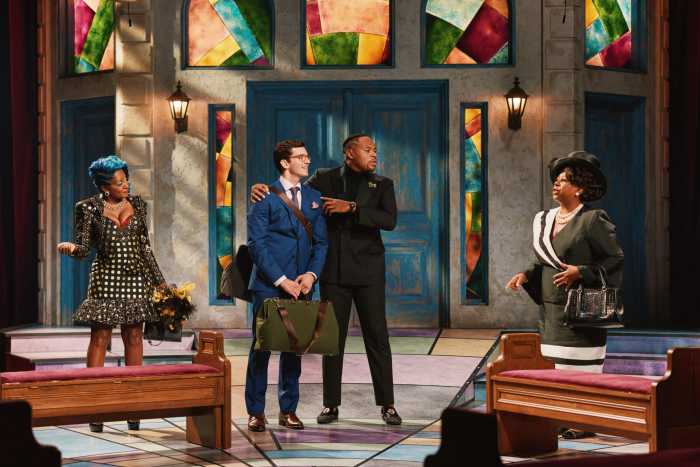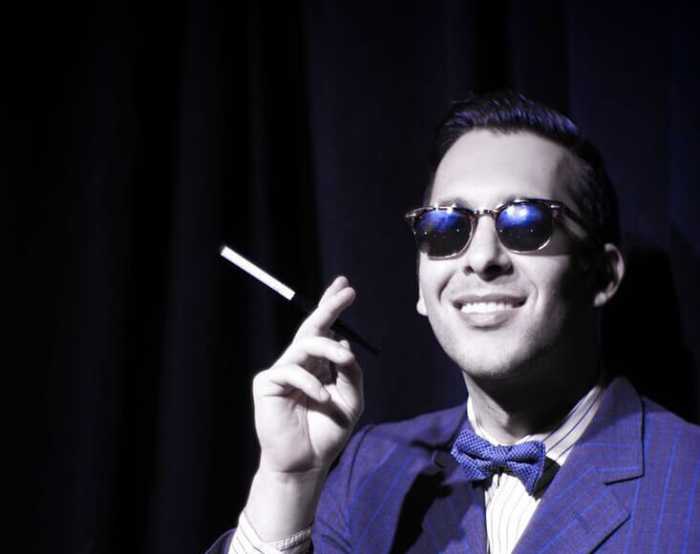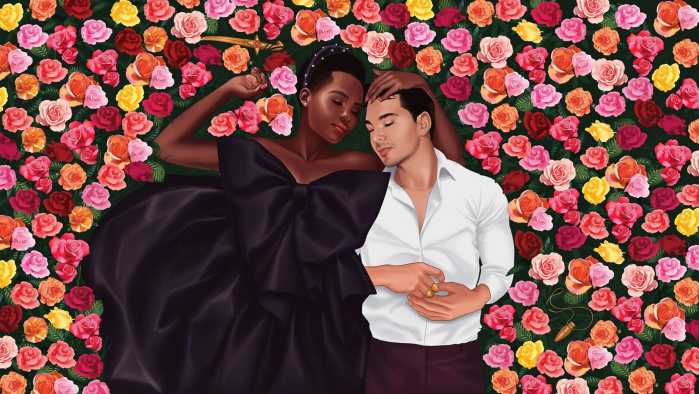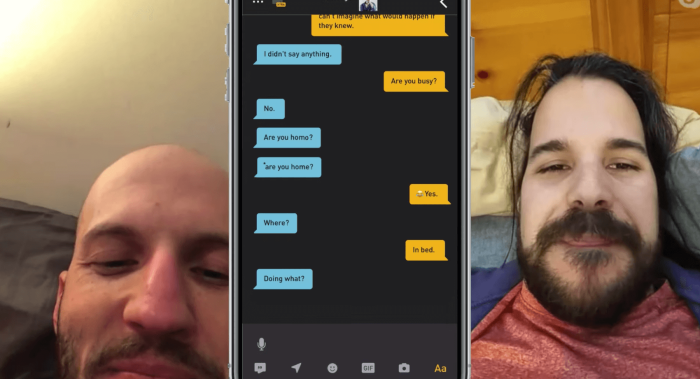The closest you can get to revisiting Charles Ludlam’s Ridiculous Theatrical Company in 2021 is Douglas Carter Beane’s new work “Fairycakes,” now at the Greenwich House Theater, just a few blocks away from where Ludlam housed his works for many years.
Beane’s piece traces a direct line from Ludlam — who made his name by deconstructing classic literature — with incisive wit, high camp, and stinging observation. Ludlam’s work, in turn, grew out of the Absurdist movement, which beyond its largely existential philosophies, also sought to deconstruct theater as a form. Absurdism traces its roots in part to the Dadaists, who sought to deconstruct all art forms. As an exercise in theater-making, “Fairycakes” is intriguing, often splendid to look at — in an over-the-top yet down-at-heels way — and brought to zany life by a cast of favorite theater people who are always a joy to see in anything they do.
The play is a mash-up of “A Midsummer Night’s Dream,” “Peter Pan,” and a series of fairy tales, including “Cinderella,” “Sleeping Beauty,” and “Pinocchio.” There isn’t much of a plot except the point that if Titania and Oberon (from “Dream”) ultimately split up their children — the fairies, Cobweb, Moth, Mustardseed, and Peaseblossum [sic] — a curse will kill them. Puck jumps in to help and hopes to win the love of Peaseblossum, who initially disdains him. (Puck calls her “Fairycakes,” which she loathes, hence the title.) Cupid makes an appearance, as does Cinderella’s prince, and a pirate Dirk Dead-Eye, who seems to have gone AWOL from Captain Hook’s ship. There’s also a cameo from Queen Elizabeth I, presumably related to “Dream.”
Somehow all this confusion and chaos makes an odd sort of sense even as people come and go very quickly and threads of one story intertwine with another. Moth, for example, is obsessed with Peter Pan, but it’s an impossible love. Peaseblossum tries to help Geppetto, and Mustardseed struggles to revive Sleeping Beauty. Puck will do whatever he can to end the supposed curse.
As with Ludlam’s work, there are larger themes at work. Beane is skewering our current cultural obsession with narratives, belief systems, performative identity, and romantic love. The piece turns serious in the second act when the gauze and gaiety are stripped away, and reality must be confronted. At that point, the piece becomes poignant and heartfelt, which puts all the previous manic mayhem in almost poetic perspective.
Entertaining and thoughtful as this is, “Fairycakes” has its problems. Beane has written the entire play in verse, and you’ll wish he’d spent more time refining it. The scansion is often off, and the rhymes forced, which makes the text lumbering and amateurish. If this was intentional as a way of satirizing Shakespeare, it doesn’t work. Beane has also chosen to direct the work, too, which is seldom a good idea. Rather than creating a cohesive vision and style, he allows each of the actors to do their signature performances, so the effect is more like a vaudeville, where each performer does their specialty. But for audience members not familiar with the performers, it would just seem uneven.
Even so, it’s a treat to see this cast abandon itself to the silliness. Jackie Hoffman, as Moth, is disappointed by her unrequited love for Peter Pan, is as wry and sardonic as always. Jason Tam as Cupid and Cinderella’s Prince is boyishly charming and subtly ironic. Arnie Burton as Oberon and Dead-Eye Dirk is a master of timing and sly commentary. Mo Rocca is wooden and bemused as Geppetto, but it works. And Ann Harada manages to be both appealing and mordant, as she’s often been, particularly in the revival of “Cinderella” on Broadway. But if you need a reason to run out and get tickets for this show, it’s to see Julie Halston. One of the most versatile comediennes working today, she scores every laugh — even those not written into the script — and lights up the stage whenever she appears. She also seems most at home with this material and the form, presumably a result of her long history working with Charles Busch, and her ability to make the incongruous and campy human.
Lewis Flinn’s music is excellent. Shoko Kambara and Adam Crinson did the set, which has a deconstructivist surprise or two, and Gregory Gale did the whimsical costumes.
Coming in at two hours and 15 minutes, the piece could use some judicious cutting and allow everyone to get out before the devices wear thin. Still, as a whimsical experiment with form, a playful piece of social criticism, and a chance to see some favorite performers having a ball, “Fairycakes” has its own unique appeal and merit.
FAIRYCAKES | Greenwich House Theater | 27 Barrow Street | Tues.-Thurs. 7:30 p.m.; Fri.-Sun. 8 p.m. through November 21 | $35-$115 | Ovationtix.com | 2 hours, 15 minutes, 1 intermission | Vaccine proof and face masks required



































